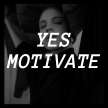
"In cultivated life it has finally gotten workable for huge quantities of individuals to pass from the support to the grave while never having had an ache of certified dread. A considerable lot of us need an assault of mental infection to show us the importance of the word." William James.
We have all heard the apparently separating comments that dread is typical and unusual, and that ordinary dread is to be viewed as a companion, while strange dread ought to be obliterated as an adversary. The truth of the matter is that no alleged ordinary dread can be named which has not been plainly missing in certain individuals who have had each cause subsequently.
On the off chance that you will run over mankind's set of experiences to you, or look about yea in the current life, you will discover to a great extent people who, in circumstances or before objects which should, as any unfortunate soul will demand, to motivate the sensation of in any event ordinary self-securing dread, are all things considered completely without the inclination.
They have each feeling and thought requested with the exception of dread. The possibility of self-safeguarding is pretty much as firmly present likewise with the most contemptibly tentative or frightened, however dread they don't have a clue. This courageous attention to fear recommending conditions might be because of a few causes.
It might result from sacred make-up, or from since quite a while ago kept preparing or adjustment, or from strict joy, or from a completely quiet feeling of profound selfhood which is unhurtable, or from the activity of extremely lifted up reason.
Whatever the clarification, the reality stays: the very causes which energize dread in the vast majority of us, simply bid, with such individuals, if by any means. to the impulse of self-protection and to reason, the thought-component about the spirit which tries for some degree of reconciliation and completeness.
**Banish all fear**
It is on such contemplations that I have come to hold that all genuine dread inclination ought to and might be expelled from our life, and that what we call "typical dread" ought to be subbed in our language by "nature" or by "reason," the component of dread being dropped by and large.
"Everybody can affirm that the psychical state called dread comprises of mental portrayals of certain excruciating outcomes" (James). The psychological portrayals might be weak thusly, however hurt to self is clearly present.
Assuming, at that point, it very well may be significantly accepted that the genuine self can't be harmed; if the explanation can be brought to think about distinctively and believingly all calming contemplations; if oneself can be held intentionally in the affirmation that the White Life encompasses the genuine self, and is without a doubt inside that self, and will endure "no evil to come near," while every one of the impulses of self protection might be entirely dynamic, dread itself should be taken out "the extent that the east is from the west."
These are the ways, at that point, where any event for dread might be partitioned:
As a notice and as a creator of frenzy. However, let us say that the admonition ought to be perceived as given to reason, that dread need not show up by any stretch of the imagination, and that the frenzy is totally pointless torment. In light of these separations, we may now go on to a fundamental investigation of dread.
**Fear is**
(a) a motivation,
(b) a propensity,
(c) an infection.
Dread, as it exists in man, is a pretend of mental soundness, an animal of the creative mind, a condition of craziness. Moreover, dread is, presently of the nerves, presently of the brain, presently of the ethical cognizance.
The division relies on the perspective. What is regularly called ordinary dread should offer spot to reason, utilizing the word to cover intuition just as thought. From the right perspective all dread is an evil inasmuch as it is engaged.
Whatever its signs, any place its clear area, dread is a mystic state, obviously, responding upon the person severally: as, in the nerves, in mental temperaments, in a solitary motivation, in a persistent propensity, in a completely lopsided condition.
The response has consistently a sincere goal, which means, for each situation, "Fare thee well! Peril!" You will see that this is so in the event that you will search briefly at three exhaustive sorts of dread: dread of self, dread for self, dread for other people.
Dread of self is in a roundabout way dread for self threat. Dread for others implies front detected or front envisioned pain to self on account of expected mishap to other people. I frequently puzzle over whether, when we dread for other people, it is trouble to self or hurt to them that is most earnestly in our musings.
Dread, at that point, is generally viewed as the spirit's peril signal. Yet, the genuine sign is a natural and smart explanation. Indeed, even impulse and reason, going about as notice, may play out their obligation strangely, or expect unusual extents. And afterward we have the sensation of dread. The typical admonition is incited by genuine risk caught by the psyche in a condition of equilibrium and restraint.
Typical brain is consistently able to do such notice. There are nevertheless two manners by which purported ordinary dread, acting in the appearance of reason, might be demolished: by the replacement of justification dread, and by the affirmation of the white life.
Leave it alone saw, presently, that by typical dread here implied ordinary genuine dread being denied spot and capacity through and through. At that point we may say that such activity of reason is a sponsor to man. It is, with agony and exhaustion, the generosity of the idea of things inside us.
One individual said: "Tired? No such word in my home!" Now this can't be a sound and solid mentality. Exhaustion, at a specific phase of exertion, is a sign to stop work. At the point when one turns out to be so caught up in labor as to black out of the sensation of exhaustion, he has given a "rush call" on death.
I don't reject that the spirit may develop a grand feeling of lightness and force; rather do I encourage you to look for that lovely condition; yet I hold that when a conviction or a mental trip won't allow you to hear the notice of nerves and muscles, Nature will definitely cause fiasco unavoidably.
Allow us to represent the bigger freedom which is blissfully allowed to exploit all that Nature may offer for genuine prosperity. There is an incomplete freedom which attempts to acknowledge itself by denying different real factors as genuine; there is a higher freedom which truly acknowledges itself by yielding such real factors as genuine and by utilizing or abusing them as event may need in light of a legitimate concern for the self at its best.
I hold this to be genuine insight: to exploit all that which clearly guarantees great to oneself, regardless of either hypothesis, and uninhibitedly to utilize all things, material or irrelevant, sensible or profound. I embrace your science or your strategy; yet I ask to overlook your subjugation to reasoning or to consistency.
So I say that to ordinary wellbeing the tired sense is a levelheaded order to renew depleted nerves and muscles. It isn't freedom, it isn't stimulating, to proclaim, "There is no torment!" Pain does exist, whatever you assert, and your attestation that it doesn't is verification that it does exist, for why (and how) announce the non-presence of that which really is non-existent?
In any case, on the off chance that you say, "Actually I have torment, however I am truly endeavoring to disregard it, and to develop figured wellbeing so the reason for torment might be eliminated," that is rational and excellent.
This is the exemplary disposition of the Bible character who cried: "Ruler, I accept; assistance thou mine unbelief." To attempt overwhelming agony with a haze of mental mist that is to turn rebel against the great administration of Nature. By torment Nature advises the person that he is some place faulty. This admonition is typical.
The inclination gets strange in the brain when creative mind twangs the nerves with emphasized aggravation, and Will, confounded by the disagreement and the mystic turmoil, cringes and shudders with dread.
I don't say there is nothing of the sort as dread. Dread exists. In any case, it exists in your life by your authorization just, not on the grounds that it is needful as a notice against "evil."
Dread is incited by unduly amplifying real risk, or by conjuring up imaginary perils through exorbitant and misled psychical responses. This likewise might be taken as a sign of risk, yet it is a dishonestly intentioned witness, for it isn't required, is unfriendly to the individual since it compromises discretion and it retains life's powers in futile and ruinous work when they should be occupied with making esteems.
YES MOTIVATE can, motivate yourself and train your brain for success. Click the link below,
About the Creator
yes motivate
yes motivate can help you reach your potential each day. And if you’re on the verge of giving up or struggling to push yourself to the next level, sometimes that’s just what you need.






Comments
There are no comments for this story
Be the first to respond and start the conversation.